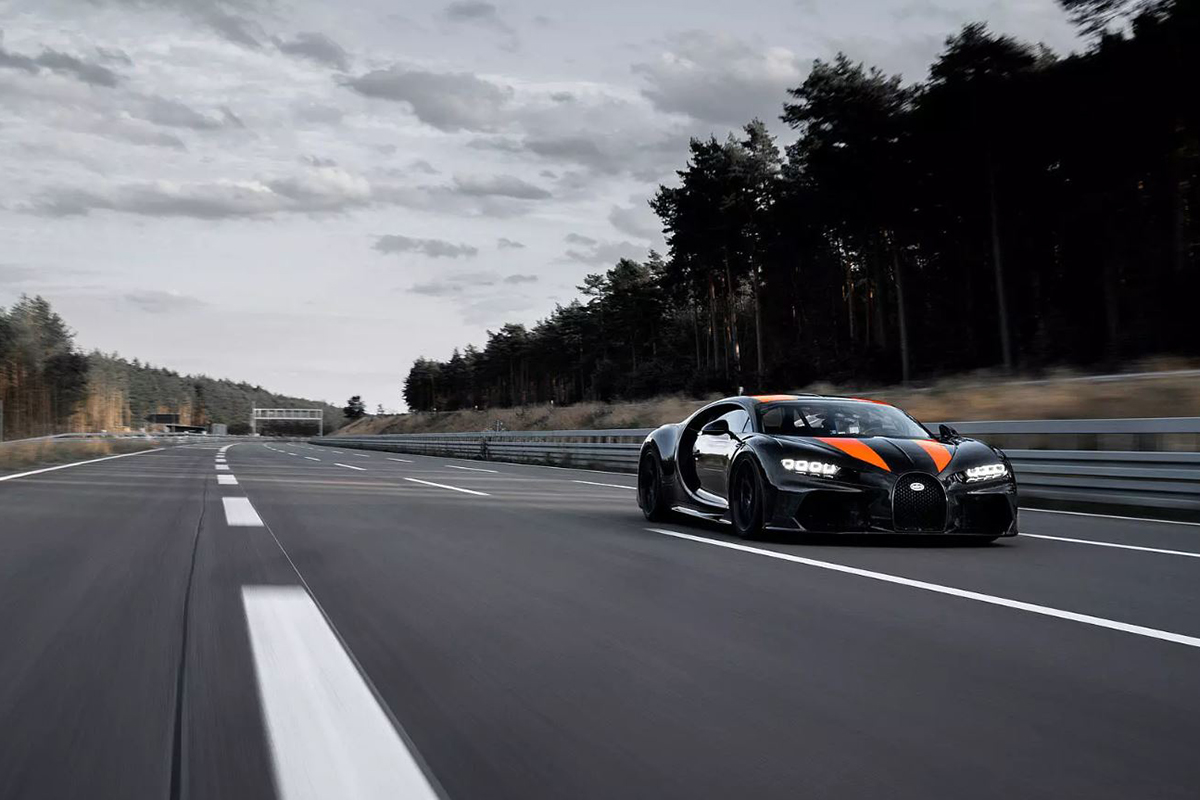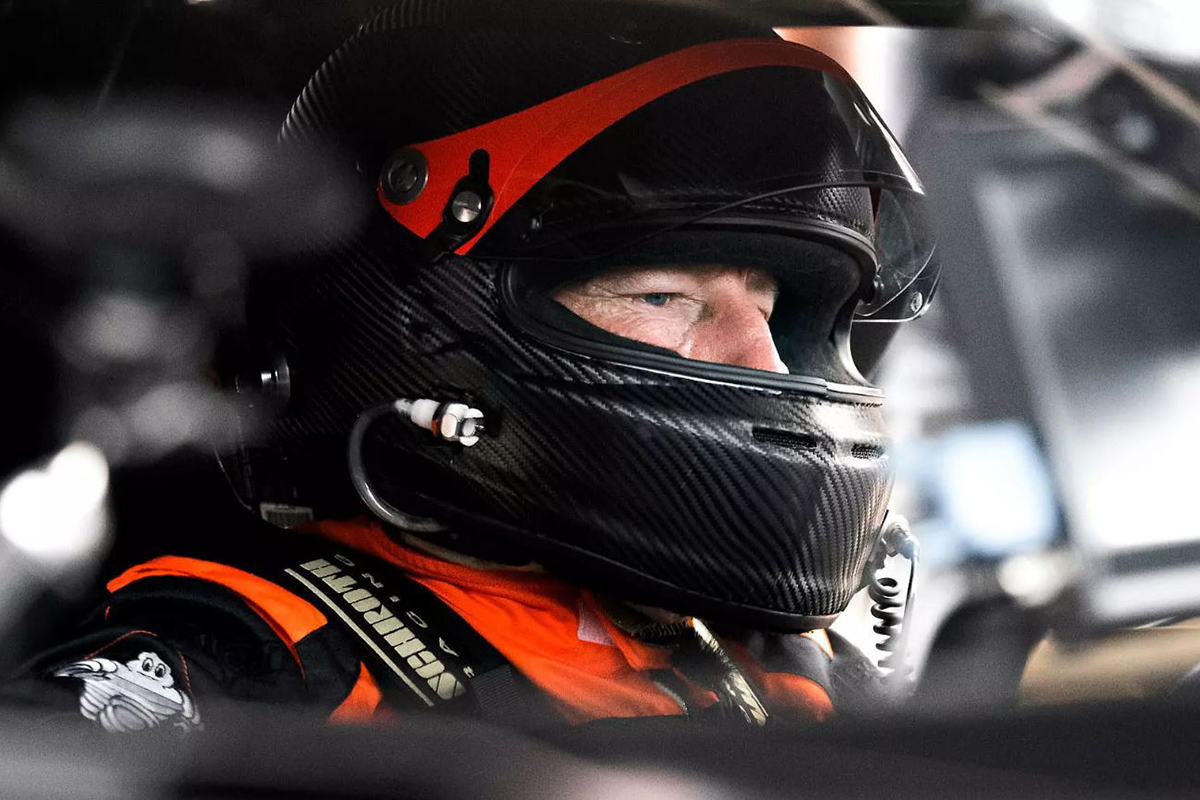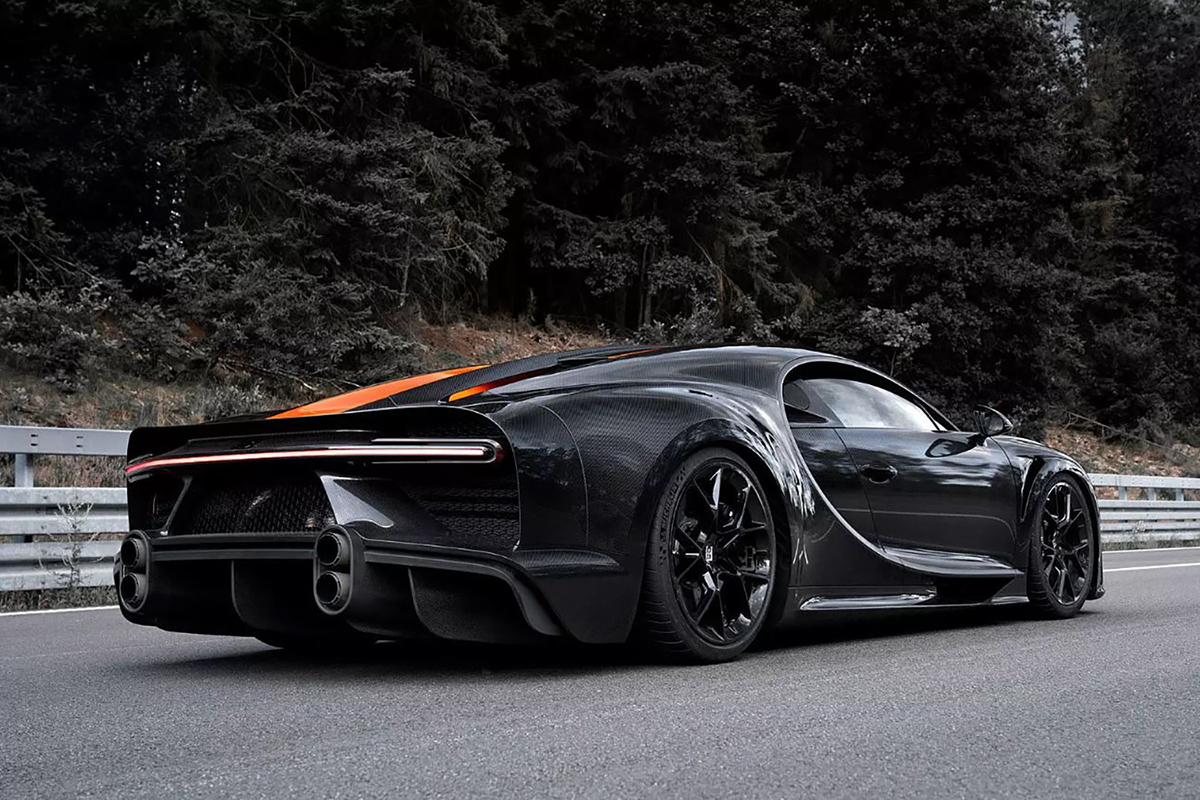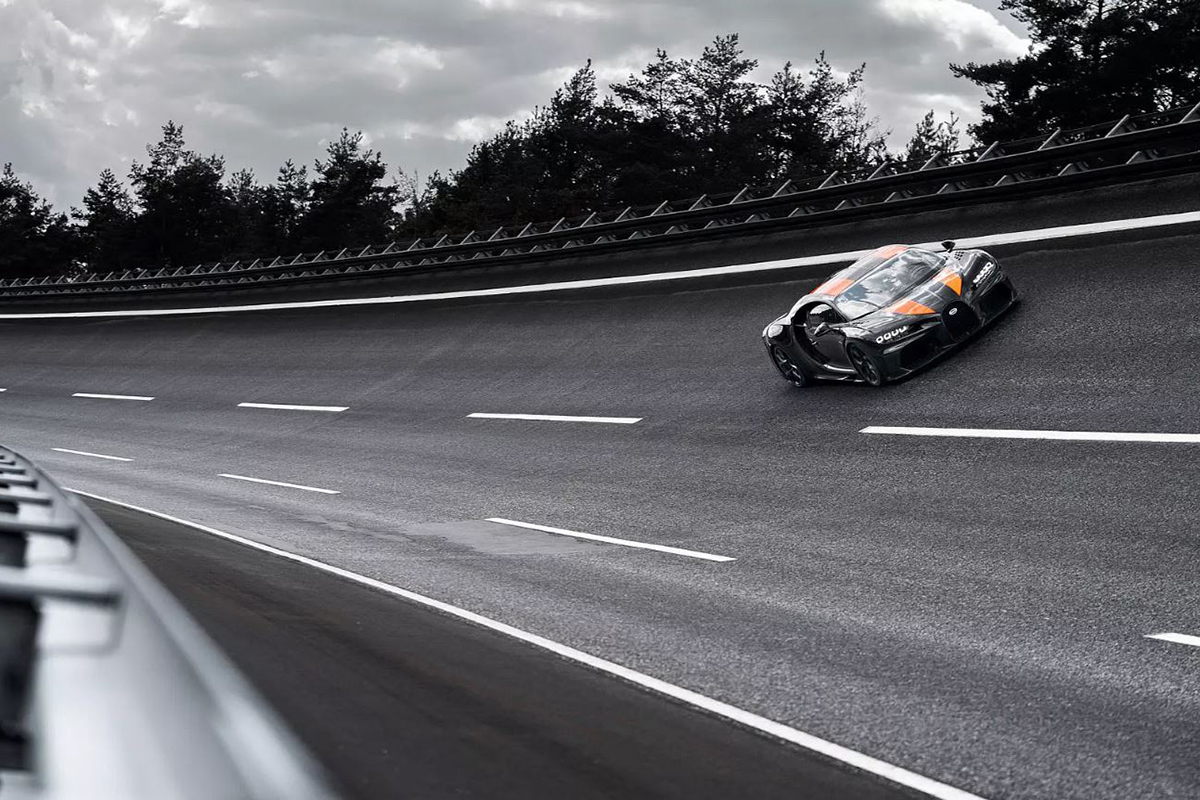Humankind is still struggling to unlock faster-than-light travel. Despite Einstein’s silly “scientific” assertions that it’s impossible, the world’s best car manufacturers seem determined to get us there. From the Veyron in 2005 to the Chiron in 2016, Bugatti has been leading the charge, breaking world record after world record. Last month, the company did the unthinkable.
On August 2, 2019, Bugatti became the first-ever car company to break the extraordinary 300-mile-per-hour mark in a pre-production vehicle. The certified speed topped out at 304.773 miles per hour on Volkswagen’s Ehra-Lessien test track in Lower Saxony, Germany. Bugatti test driver (side note: where do we sign up for that job?) and Le Mans winner Andy Wallace shattered the record in a modified Bugatti Chiron Super Sport 300+ Coupe. From 300 kilometers per hour, the world-class driver reached the car’s max speed in 50-kph increments to ensure it was equipped to safely handle the mind-boggling velocity. In the final 5.4-mile straightaway leading up to the record, Wallace covered nearly 450 feet in just one second.
In addition to the Batman-worthy, jet-black paint scheme, the already legendary hypercar was specially tuned with an extra 100 horsepower from its stock, quad-turbo, eight-liter W16 engine. Power at the wheels was rated at a staggering 1,600 horsepower. Surprisingly, the all-wheel-drive system and Ricardo seven-speed dual-clutch automatic transmission were both unmodified. Bugatti worked closely with Michelin and Italian race specialists Dallara to maximize the car’s aerodynamics. The Chiron was fitted with special Michelin Pilot Sport Cup 2 tires capable of handling more than 4,000 rotations per minute. For added downforce and reduced drag, the company ditched the fixed rear wing and extended the body by ten inches. The laser-controlled suspension automatically adjusts the Chiron’s ride-height to reduce drag even more.
In an epic mic-drop press statement following the victory, Bugatti president Stephan Winkelmann proudly thumbed his nose at the entire supercar industry:
“Bugatti has once again shown what it’s capable of. With this new record of the Chiron we enter again uncharted territory … Our goal was to be the first manufacturer ever to reach the magic 300-mile-per-hour mark. We have now achieved this … We have shown several times that we build the fastest cars in the world. In [the] future we will focus on other areas.”
The statement confirmed Bugatti is withdrawing from the top-speed arms race that’s been raging in the hypercar industry to produce ever-faster and absurdly powerful vehicles.
If this legendary supercar arrives in 2021 as Bugatti has hinted, only 30 will be produced. Despite the four-million-dollar price tag, we expect them to sell out immediately. If you miss your shot, but still need something to blow your lottery winnings on, Lotus’ all-electric, 2,000-horsepower Evija will soon be available for half that price.







